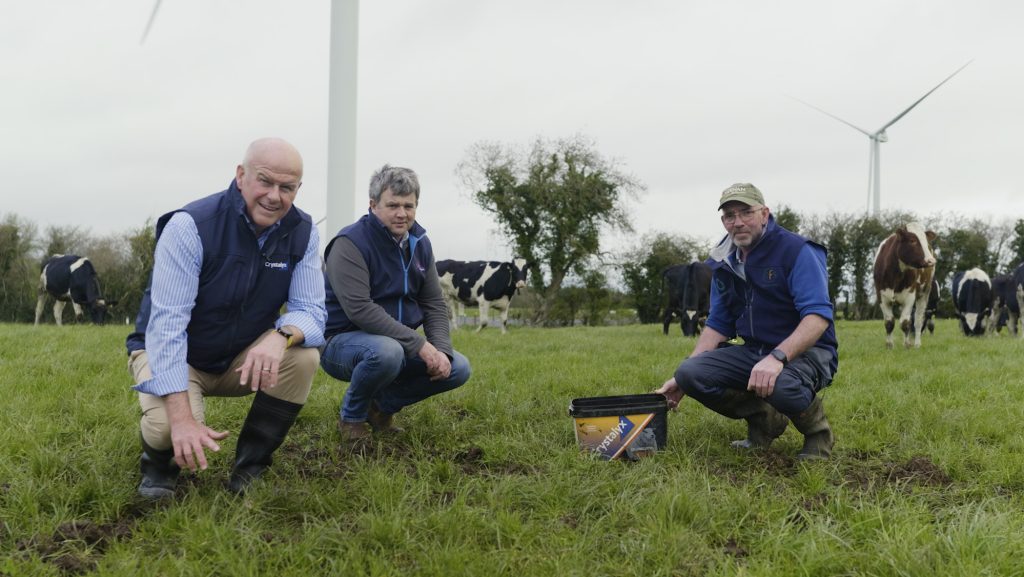For dairy and suckler farms that have livestock out to pasture during the summer months, fly control is vital. There’s the threat of summer mastitis in replacement heifers and dry cows. There’s also the threat of the Bluetongue viral disease transmitted by infected midges.
Rain combined with a rise in temperatures make for the perfect conditions for fly populations. So it’s likely that we can expect a rise in fly and midge numbers throughout the summer months.
Dr Richard Wynn: Carrs Agriculture Head of Technical comments.
“As fly populations increase, the threat of summer mastitis rises in a corresponding manner. Summer mastitis predominantly occurs during the warm summer months with cattle out at pasture. The disease affects non-lactating cows and replacement heifers, leading to potentially devastating consequences, says Richard.
“Affected quarters often don’t recover, so any treatment is purely salvage and the main goals should be to avoid the disease altogether, or at least minimise its incidence. The supervision of heifers and cows at pasture during the summer months can be sporadic due to other commitments on the farm, so mastitis can be well advanced before clinical signs are seen”.
“Transmission of infection is thought to be linked to summer flying insects, most notably the sheep head fly ‘Hydrotaea Irritans‘. The fly eggs over-winter in sandy soils and emerge in June or July. These flies live in bushes and trees, and can only fly during mild, damp, humid conditions and low wind speeds. High winds and heavy rains inhibit fly activity. Hence, cases tend to be associated with “problem fields” next to woods, high hedges and water sources”, adds Richard.
Reducing Fly Irritation and Udder Health Issues
Constant and high levels of worrying by flies around the affected teat orifice cause considerable irritation and frequent kicking which can worsen the problem, facilitating bacterial entry directly into the teat canal. The affected quarter, or often whole udder, becomes swollen, inflamed and very painful. A yellow, foul-smelling discharge usually leaks out of these swollen teats and inevitably attracts more flies – increasing the potential for infection transfer to other nearby stock. As the disease progresses, irreversible tissue damage occurs and the quarter can be lost. It’s important to spot the issues as quickly as possible, and talk to your vet about the best means of treatment.
A very effective way of reducing irritation from flies and other biting insects in grazing heifers and other livestock is to make the animals’ coat less attractive on which to land.
Crystalyx Garlyx low moisture feed blocks feature high-sulphur compounds that create an intense and penetrating odour of garlic. When consumed by dairy heifers or dry cows while at grass, these compounds permeate out of the pores in the skin and produce an invisible barrier or screen which flies and other nuisance biting insects find repellent and hostile.
Fly Control Stops A Mastitis Challenge
Mr O’Grady milks 130 spring calving grazing cows at Bricana, Johnstown, Co Kilkenny. The cows are currently average 6.300L of milk, producing 500kg of solids. Rearing his own heifers has always been a priority for Mr O’Grady. Over recent years, he has been using increased levels of sexed semen on his top cows in order to speed up the rate of genetic progress that is achieved within the herd. And it’s an approach that is paying dividends for him.
Having experienced summer mastitis for up to 4 years, Mr O’Grady introduced a garlic lick in the hope it would ward off flies and other biting insects throughout the grazing season.
“I started putting out the Crystalyx Garlyx feed tubs with heifers while at grass, and I have not had one case of summer mastitis since taking this approach”, Mr O’Grady explains.
The heifers on the O’Grady farm are, traditionally grazed on a block of land, which is directly adjacent to a wooded area. “It’s a location that is very suited to flies and other biting insects,” Mr O’Grady admitted. “This, no doubt, was adding to the summer mastitis issues that cropped up in the past. However, putting the Garlyx feed blocks out with the heifers provided a very effective solution to the problem. They keep the flies at bay.”
Crystalyx Garlyx contains a concentrated garlic extract which, when consumed, acts as a constant natural deterrent.

